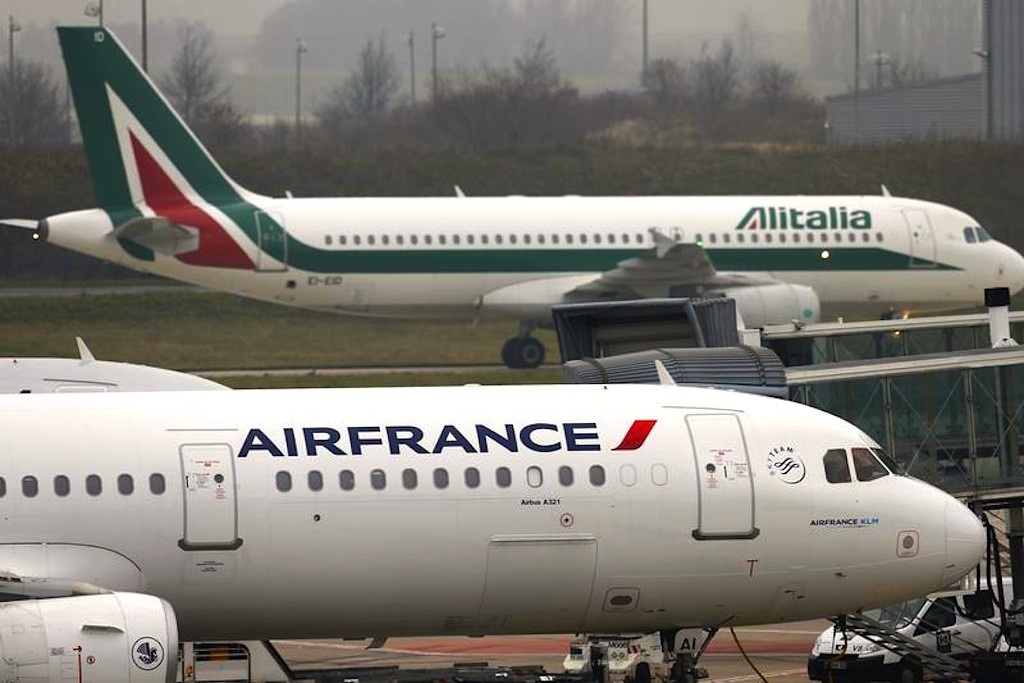- Exchange Rate: Foreign Airlines Raise Fares
The international airfares from Lagos to various destinations across the globe have recorded a further increase following the announcement of a new dollar exchange rate for the sale of air tickets.
The Switzerland-based IATA, the trade association representing over 290 global airlines, reviewed the dollar exchange rate for the sale of tickets for flights out of Nigeria from 305/dollar to 326/dollar about three weeks ago.
As a result of this development, international airfares out of Nigeria, which are already on the high side, have risen further by seven per cent.
Travel companies issuing international tickets in Nigeria confirmed to our correspondent on Sunday that airfares had recorded a further increase.
Although some travel agents expressed the hope that the development would not affect sales volume, other felt some cost-conscious passengers might choose to cancel proposed travels owing to the rise.
A survey by our correspondent on Sunday showed that non-stop return flights in the economy class from Lagos to some destinations in the United States aboard the Delta Airlines, which used to cost between N750,000 and N850,000 during the summer season, were being offered between N850,000 and N940,000.
Non-stop return flights from Lagos to London, the United Kingdom in the economy class on the British Airways and Virgin Atlantic, which used to be between N350,000 and N550,000, had also up to between N400,000 to N600,000 for the summer season.
Non-stop return flight in the economy class from Lagos to destinations in South Africa, aboard the South Africa Airways, which used to cost between N220,000 and N240,000, depending on the timing, had gone up to between N230,000 and N250,000 for the summer season.
Although airfares actually rose as a result of the increase in the exchange rate for the sale of tickets from 305/dollar to 326/dollar, some travel agents said the development had made foreign airlines to release some cheaper classes of airfares that hitherto were blocked.
Unconfirmed sources said foreign airlines flying into the country were not breaking even with the sale of tickets at 305/dollar.
The development, it was learnt, forced them to approach IATA to increase the exchange rate from 305/dollar to 326/dollar.
Foreign airlines had allegedly blocked travel agents from accessing some cheaper classes of seats for passengers.
However, the blocking of cheaper classes of seats was said to be partly connected with the old problem of not being able to access adequate amount of dollars from the Central Bank of Nigeria to repatriate their naira revenue.
Travel agents said IATA agreed to increase the exchange rate on the premise that airlines would unblock the cheaper classes of seats.
The President, National Association of Nigerian Travel Agents, Mr. Bernard Bankole, confirmed that foreign airlines had unblocked some cheaper classes of seats for travel agents, following the increase in the exchange rate from 305/dollar to 326/dollar by IATA.
Bankole said, “Airlines have unblocked some cheaper classes of seats that were not available for sale before now. For example, flights to London that used to be N450,000 or N550,000 have come down. We have flights of N350,000 on the British Airways, Virgin Atlantic now. We now have Oscar class and Sugar class of seats that can be bought for N270,000 and N280,000. IATA has increased the exchange rate for the sale of ticket, but foreign airlines have in turn opened the cheaper classes.”’
Airfares especially international travel tickets have witnessed significant rise in the last two years following the depreciation of the naira from 155/dollar to the current 326/dollar official.
Currently, travel agents said the IATA rate had been fluctuating between N325/dollar and N328/dollar.
The fluctuation in the exchange rate has in the last few years forced some foreign airlines to shut down their services in Nigeria. They included the United Airlines, which used to fly between Lagos and Houston, and the Spanish carrier, Iberia. They both left due to difficulties in converting proceeds from ticket sales into dollars for repatriation.
A travel agent, who spoke on condition of anonymity, said the problem had forced many travel agencies out of business.
“The fluctuation has been like this since the recession but we are yet to get used to it. When it just rose to N200, a lot of people were still travelling because you could still get tickets for N300,000 to New York but since it rose further, many licensed IATA agents have shut down. What keep many of us in the business are the push and the belief that it will get better,” she said


 Forex2 weeks ago
Forex2 weeks ago


 Naira2 weeks ago
Naira2 weeks ago
 Naira4 weeks ago
Naira4 weeks ago
 Company News4 weeks ago
Company News4 weeks ago
 Billionaire Watch1 week ago
Billionaire Watch1 week ago




 Naira2 weeks ago
Naira2 weeks ago




 Naira4 weeks ago
Naira4 weeks ago




 Naira1 week ago
Naira1 week ago





















